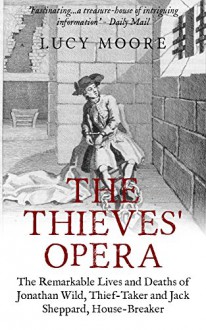
Sometimes I wonder if I'm giving the completely wrong impression of a book because I always focus on the particularly weird or gossipy quotes. Then I move on and continue to quote them. (I realized this could be solved if I'd just finish more of the reviews I keep meaning to get around to writing. Working on that.)
One thing I'm finding in comparing my paper copy of this book to the ebook (oddly still free at Amazon US) is that you miss out on all the great William Hogarth artwork, which really are great illusrations the culture. (You've probably seen them already in history books.) But then they're all easily found online. Examples: A Harlot's Progress and A Rake's Progress. Each of those Wikipedia pages shows the series of paintings/prints and describes what's going on - there's an entire life story in each. (I'd never had seen the full set this nicely until the internet came along. Great description/explanations too.)
Anyway, time for a juicy quote!
p 93:
Coffee-houses and particularly taverns were primarily frequented by men. Ladies might go to chocolate-houses during the day, but only women careless of their reputations would go to taverns. Many doubled as whore-houses or, at the least, venues for soliciting, marked by subtle signals that would have been blatantly obvious to the initiated. The ‘Sign of the Star’ outside a coffee-house was said to indicate ‘every lewd purpose’. Cesar de Saussure discovered that many coffee-houses were also ‘Temples of Venus. You can easily recognize the latter because they frequently have as sign a woman’s arm or hand holding a coffee-pot.’ The evidence in court of one Susan Brockway shows how taverns might be used:
"This man took us to the tavern and offered us a crown apiece to strip ourselves naked, and show him postures. He gave Mary Gardner money to fetch a penny-worth of rods, for him to whip us across the room, and make us good girls; and then for us to whip him to make him a good boy: but we told him it was neither a proper time nor place for any such thing, for it was Sunday night, and others might over-look us in the room we were in."
This isn't the first history book noting why women didn't go to taverns or to many places at night (without multiple escorts, not just with one dude or maid) - the reasons to avoid them were extremely good and as much about safety as propriety. So another bad romance trope: heroine goes off to tavern at night, alone, for some adventurous reason because she's rebellious and all. This happens way too often with characters that aren't supposed to be dumb as a post. But then, that's fiction. (I think the main reason I quibble is because not enough of us are aware of what incredibly cloistered, dull and dangerous lives women had at this time.)
Here's an example of how history books like this get me into trouble with the memory space on my ereader. After reading that quote from Cesar de Saussure I was curious - a quick google and I find:
A foreign view of England in the reigns of George I and George II : The letters of Monsieur Cesar de Saussure to his family; translated and edited by Madame Van Muyden (1902)
Internet Archive link (read online or download ebook) - if you follow the Open Library link on that page you can email a copy to your kindle. No idea how interesting it is - haven't read any of it yet.
Again, this is how I add SO much stuff to my ereader. I try to make myself read some of these books before downloading as a lot of them only seem to have interesting portions and then go into dull patches.
Meanwhile - chocolate. I always have a great time reading about drinking chocolate - and I have to remind myself it'd be nothing like the hot chocolate that I'm used to. A bit of fun history about drinking chocolate:
The surprising history of London's lost chocolate houses
In Georgian times, London's decadent chocolate houses were unexpected bastions of rowdy behaviour and aristocratic disorder
Dr Matthew Green, The Telegraph UK, 13 Dec 2013
"...For a city with little tradition of hot drinks (coffee had only arrived five years earlier), chocolate was an alien, suspect substance drunk associated with popery and idleness (i.e. France and Spain); a market had to be generated. Within the next decade, a slew of pamphlets appeared proclaiming the miraculous, panacean qualities of the new drink, which would boost fertility, cure consumption, alleviate indigestion and reverse ageing: a mere lick, it was said, would ‘make old women young and fresh, create new motions of the flesh’. For Samuel Pepys, chocolate was the perfect cure for a hangover, relieving his ‘sad head’ and ‘imbecilic stomach’ the day after Charles II’s bacchanalian coronation. The commonest claim, however — one inherited from the Aztecs and still perpetuated by chocolate companies the world over today — was that chocolate was a supremely powerful aphrodisiac. "
Ah marketing. Never does change much, huh?
Couldn't seem to find an article about what specifically differentiated a coffee house from a chocolate house - but I expect that was completely up to whichever product was selling better and where the shop was located.

 Log in with Facebook
Log in with Facebook 







